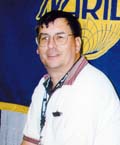
 |
Inter-Society Activities |
David A. Case, Associate Editor |
For those of us in the wireless and telecommunications field, several key events will affect how we approach certification of our products both in Europe and here in the United States.
The first two events involve Europe and the implementation of the Mutual Recognition Agreements (MRAs) and the Radio and Telecommunications Terminal (R&TTE) Directive. Both of these will significantly effect not only how fast products can get to market, but also even where they are tested.
Under the R&TTE Directive, it will be possible for a manufacturer to test and self-declare compliance of his telecom or radio based equipment in the United States for sale in Europe. This will cut both time and cost to non European based companies who now must have their products tested in Europe to obtain type approval.
Under the R&TTE directive, based upon using harmonized standards, telecom and radio equipment will only need to be reviewed by one Notified Body lab which will issue a approval number that will be accepted by all the European Union (EU) countries. The MRA will allow for the establishment of Notified Bodies to be located in the United States. Under this new directive, the EU countries have one year to implement this directive into national law. The effective date of the R&TTE Directive was April 8, 2000.
In the US, the FCC's Telecommunications Certified Body (TCB) program is progressing. The TCB program is spelled out under FCC ET Docket 98-68. The basic concept is to qualify competent private sector entities as reviewers of the FCC telecommunication and radio submittals. Thus, helping off-load some of the workload of the FCC and speeding up the approval process. Domestic TCBs must be designated by the FCC once they have been accredited by the American National Standards Institute (ANSI), who in turn will be accredited by the National Institute of Standards and Technology (NIST).
NIST has been tasked with establishing a sub-program under NVCASE to recognize bodies that accredit certification bodies to certify products related to telecommunications equipment. This accreditation of the accreditors is being done at the request of the FCC.
In a Public Notice, DA-1640, dated August 17, 1999, the Commission gave additional clarification on various aspect of the TCB programs, which included the scope of accreditation, sub-contracting, retention of records, etc. The accreditation will be available for several different scopes of equipment certification. A TCB can choose to obtain their accreditation for any or all of the categories within each scope.
The FCC has divided the accreditation into three major categories, unlicensed transmitter, licensed radio services, and telephone terminal equipment. Under the first two of these there are four subcategories for which a TCB can be certified. As stated earlier, a TCB is required to be accredited for only one category or subcategory.
A TCB must be accredited to the general requirements of ISO Guide 65 and ISO Guide 25 as well as be capable of performing a core set of equipment tests for each scope of accreditation as spelled out in the public notice.
However, a manufacturer or a manufacturer's laboratory cannot be designated as a TCB, since a TCB must be totally impartial. According to the public notice, a TCB can be located outside the US in accordance with the terms of an effective bilateral mutual recognition agreement.
The FCC conducted the first round of training for the TCB trainers, assessors, and hopeful TCB designates in December 1999. Future training is being conducted by private industry using the FCC trained trainers. Future TCB training is planned for later this year both in the US and Europe.
Those interested in the TCB program might want to consider the newest group to join the IEEE EMC Society's Representative Advisory Committee (RAC): the TCB Council. This work group is open to anyone interested in the TCB program. Please contact Dave Case at phone 330-665-7396 or e-mail davecase@cisco.com. Please contact the ACIL for further information on the TCB program, phone 202-887-5872. EMC